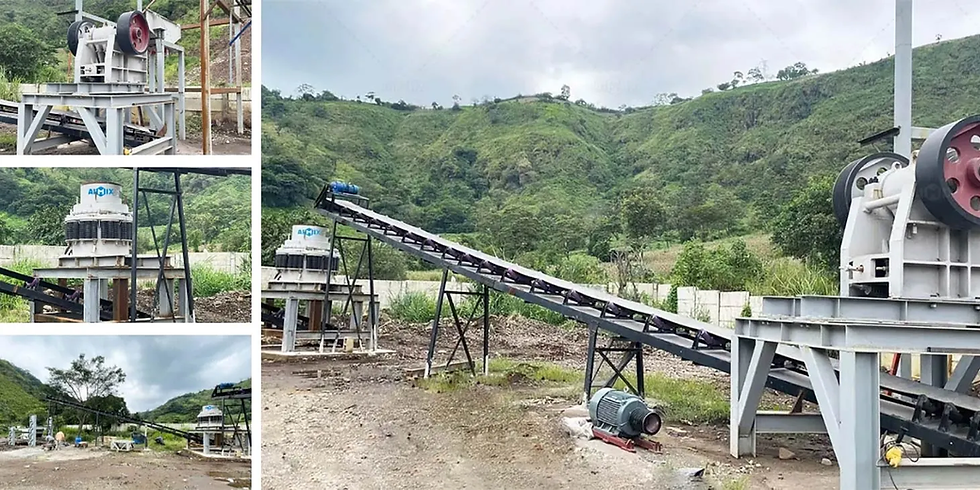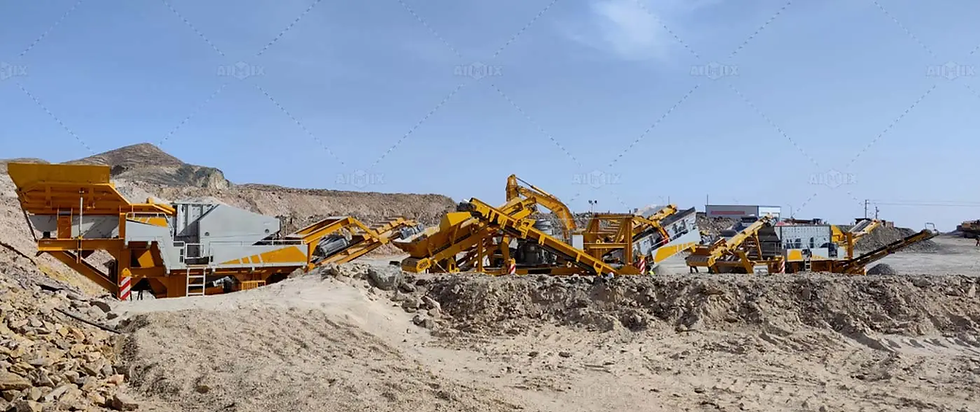Why a 200 TPH Crushing Plant is a Smart Investment for Large-Scale Projects
- aimixgroup china
- Mar 19
- 2 min read
A 200 TPH crushing plant is more than just heavy machinery—it's a strategic investment for large-scale projects that demand high efficiency and cost-effectiveness. Whether for infrastructure development, commercial construction, or mining operations, this plant ensures steady aggregate production while optimizing costs. With a balance between throughput, energy efficiency, and adaptability, this investment can significantly impact project timelines and profitability.
Efficiency and Production Capacity
High throughput for demanding operations
Large-scale projects require a reliable and consistent supply of aggregates, and a 200 TPH crushing plant delivers precisely that. With the ability to process up to 200 tons per hour, this equipment significantly reduces downtime and keeps production running at optimal efficiency. The plant's design ensures a steady material flow, preventing bottlenecks and maximizing output.

Consistent quality in aggregate production
Beyond sheer volume, the quality of crushed materials is paramount. A well-designed 200 TPH plant includes advanced crushing mechanisms that produce uniform aggregates, crucial for meeting industry standards in road construction, concrete production, and railway ballast. This uniformity translates to stronger structures, reduced material waste, and fewer reprocessing needs.
Cost-Effectiveness in Large-Scale Operations
Optimized energy consumption and maintenance
One of the key concerns in high-capacity crushing is energy efficiency. A 200 TPH plant typically integrates modern automation and energy-saving components, reducing overall power consumption per ton of material processed. Additionally, modular designs and wear-resistant components extend equipment lifespan, minimizing maintenance costs over time.
Reduction in material transportation costs
When on-site aggregate production is available, the need for external material transport decreases, significantly cutting logistical expenses. A 200 TPH stone crushing plant positioned strategically within a project site eliminates unnecessary hauling costs and improves environmental sustainability by reducing fuel consumption and emissions.
Versatility and Adaptability in Various Applications
Compatibility with different raw materials
A key advantage of a 200 TPH crushing plant is its ability to process various materials, including granite, limestone, basalt, and recycled concrete. This adaptability makes it an ideal choice for projects that require diverse aggregate compositions without needing multiple crushing units.

Customization for specific project needs
Different projects demand different specifications, and a 200 TPH plant can be tailored with various crusher types, such as jaw crushers for primary breaking, cone crushers for fine crushing, and impact crushers for shaping aggregates. The plant's configuration can also be adjusted to meet specific size and grading requirements, ensuring efficiency across multiple applications.
A 200 TPH crushing plant is not just an asset but a long-term strategic investment. With its balance of high productivity, cost efficiency, and adaptability, it proves indispensable for large-scale projects seeking sustainable and profitable aggregate production.



Comments